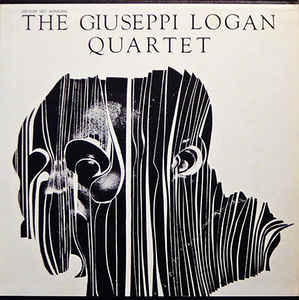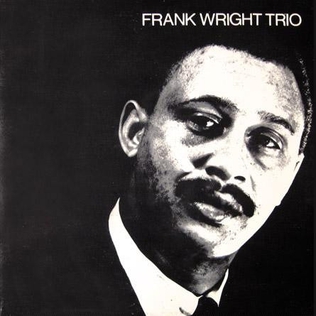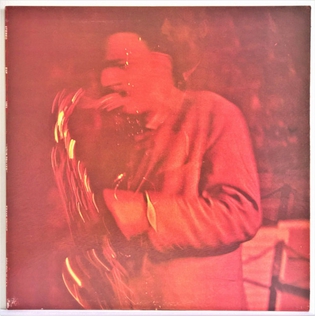
Alan Silva is an American free jazz double bassist and keyboard player.

ESP-Disk is a New York-based record company and label founded in 1963 by lawyer Bernard Stollman.

Town Hall, 1962 is an album by Ornette Coleman, recorded on December 21, 1962 at New York City's Town Hall and released in 1965 by the ESP-Disk label. It was the first recording to feature Coleman's new trio, which included bassist David Izenzon and drummer Charles Moffett.
The New York Art Quartet was a free jazz ensemble, originally made up of saxophonist John Tchicai, trombonist Roswell Rudd, drummer Milford Graves and bassist Lewis Worrell, that came into existence in 1964 in New York City. Worrell was later replaced by various other bassists, including Reggie Workman, Finn Von Eyben, Harold Dodson, Eddie Gómez, Steve Swallow, and Buell Neidlinger. All About Jazz reviewer Clifford Allen wrote that the group "cut some of the most powerful music in the free jazz underground".
Lowell Davidson was a jazz pianist and biochemist from Boston, Massachusetts. He was known for his "sensible and free flowing approach to unconventional linear improvisation", but appeared on only a handful of commercially-available recordings. Davidson also played bass, percussion, organ, electronic keyboards, and reed instruments.

Spiritual Unity is a studio album by American free jazz saxophonist Albert Ayler. It was recorded on July 10, 1964 in New York City, and features bassist Gary Peacock and drummer Sunny Murray. It was the first album recorded for Bernard Stollman's ESP-Disk label, and it brought Ayler to international attention as it was so "shockingly different". At the same time, it transformed ESP-DISK into "a major source for avant-garde jazz". A 5-star review in AllMusic called it a "landmark recording that's essential to any basic understanding of free jazz", "the album that pushed Albert Ayler to the forefront of jazz's avant-garde... really the first available document of Ayler's music that matched him with a group of truly sympathetic musicians", and stated that "the results are a magnificently pure distillation of his aesthetic."
Frank Wright was an American free jazz musician, known for his frantic style of playing the tenor saxophone. Critics often compare his music to that of Albert Ayler, although Wright "offers his honks and squawks with a phraseology derived from the slower, earthier funk of R&B and gospel music." According to AllMusic biographer Chris Kelsey, Wright "never recorded even a single record under his own name for a major label; he was 'underground' his entire career." In addition to tenor saxophone, Wright also played the soprano saxophone and bass clarinet.

New York Eye and Ear Control is an album of group improvisations recorded in July 1964 by an augmented version of Albert Ayler's group to provide the soundtrack for Michael Snow's film of the same name.

Vietnam, also referred to as Vietnam 1 & 2 is a live album by the Revolutionary Ensemble, violinist Leroy Jenkins, bassist Sirone and drummer Jerome Cooper, which was recorded in 1972 and released on the ESP-Disk label.

Pharoah's First is the debut album by American free jazz saxophonist Pharoah Sanders, recorded in New York City at the loft of audio engineer Jerry Newman on September 10, 1964, and first released in 1965 on the ESP-Disk label. The album was originally issued with the title Pharaoh and was later re-released with the titles Pharoah,Pharaoh Sanders Quintet, Pharoah Sanders Quintet, and Pharaoh's First, and was also included in its entirety in the 2012 4-CD compilation In The Beginning 1963-1964.

The Giuseppi Logan Quartet is an album by American jazz saxophonist Giuseppi Logan, recorded at Bell Sound Studios in 1964 and released in 1965 on the ESP-Disk label. His first recording as leader, it features Logan on alto saxophone, tenor saxophone, Pakistani oboe, bass clarinet, and flute along with pianist Don Pullen, bassist Eddie Gómez, and drummer Milford Graves. Logan had moved to New York City in September 1964, and the recording took place shortly after the October Revolution in Jazz, at which Logan performed, and during which he met ESP-Disk founder Bernard Stollman. According to Logan, the musicians had not played together prior to the recording session.

Percussion Ensemble is an album by American percussionist Milford Graves, recorded in July 1965 and released in 1966 by the ESP-Disk label. On the album, Graves is joined by fellow percussionist Sonny Morgan. The two had previously recorded together on the Montego Joe albums Arriba! and Wild & Warm. Morgan would go on to play and record regularly with Leon Thomas and others, but died in 1976.

Sunny Murray, also known as Sunny Murray Quintet, is an album by American free jazz drummer Sunny Murray, his second as a leader. It was recorded in New York City in January, 1966, and released on the ESP-Disk label. The album features Murray on drums along with alto saxophonists Byard Lancaster and Jack Graham, trumpeter Jacques Coursil, and bassist Alan Silva. A remastered version, which includes an interview between Murray and ESP founder Bernard Stollman, was issued by ESP-Disk in 2007.

Frank Wright Trio is the debut album by saxophonist Frank Wright. It was recorded in November 1965 in New York City, released by ESP-Disk in 1966, and reissued on CD in 1992. On the album, Wright is joined by bassist Henry Grimes and drummer Tom Price. The tracks were also reissued in 2005 on the Frank Wright compilation The Complete ESP-Disk Recordings.

Your Prayer is the second album by saxophonist Frank Wright. It was recorded in May 1967 in New York City and was released by ESP-Disk later that year. On the album, Wright is joined by saxophonist Arthur Jones, trumpeter Jacques Coursil, bassist Steve Tintweiss, and drummer Muhammad Ali. The tracks were reissued in 2005 on the Frank Wright compilation The Complete ESP-Disk Recordings.

Marzette Watts and Company, also known as Marzette and Company, is the debut album by saxophonist and composer Marzette Watts. It was recorded in December 1966 in New York City, and was released by ESP-Disk in 1968. On the album, Watts is joined by saxophonist, flutist, and bass clarinetist Byard Lancaster, cornetist and trombonist Clifford Thornton, guitarist Sonny Sharrock, vibraphonist Karl Berger, bassists Henry Grimes and Juney Booth, and drummer J. C. Moses. The album, which was reissued by ESP-Disk in 2012, was recorded under the supervision of Clifford Thornton.
Jacques Coursil was a composer, jazz trumpeter, scholar, and professor of literature, linguistics, and philosophy.

Clameurs (Clamors) is an album by trumpeter and composer Jacques Coursil. It was recorded at Fort-de-France in Martinique in the spring and summer of 2006, with additional percussion tracks recorded in Paris and New York City, and was released in 2007 by Universal Music France.

Skillfulness is an album by multi-instrumentalist Alan Silva. It was recorded in November 1968 in New York City, and was released in 1969 by ESP-Disk. On the album, Silva is joined by flutist Becky Friend, pianist Dave Burrell, pianist and organist Mike Ephron, vibraphonist Karl Berger, and percussionists Lawrence Cooke, Barry Altschul, and Mario Pavone. The recording was made shortly before Silva moved to Europe.

The Complete ESP-Disk Recordings is a two-CD compilation album by saxophonist Frank Wright. Issued by ESP-Disk in 2005, it contains two studio albums released by the label during the 1960s: Frank Wright Trio, recorded in 1965 and issued in 1966, featuring bassist Henry Grimes and drummer Tom Price, and Your Prayer, recorded and released in 1967, featuring saxophone Arthur Jones, trumpeter Jacques Coursil, bassist Steve Tintweiss, and drummer Muhammad Ali. The compilation also features a twelve-part interview with Wright, conducted by ESP-Disk founder Bernard Stollman.
















